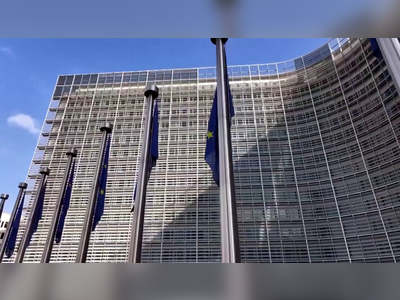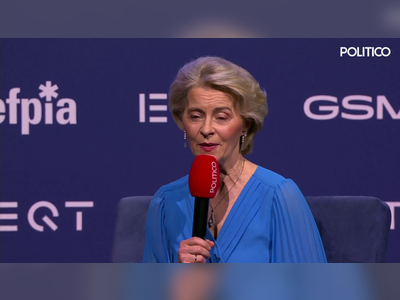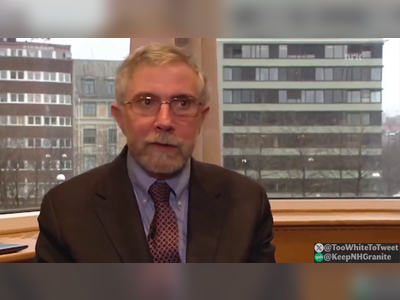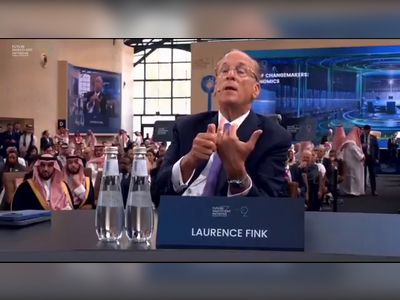
JPMorgan's Full Return to Office Mandate Provokes Employee Backlash
Financial institutions face challenges as office return policies clash with employee preferences for hybrid work schedules.
JPMorgan Chase has recently instructed its employees to transition from hybrid work schedules to returning to the office full-time starting in March, inciting significant criticism from its workforce.
This development signals a decisive move by the banking giant to reinforce its commitment to an office-based work culture, aligning with similar demands from other major financial players such as Goldman Sachs and Morgan Stanley.
The directive was communicated to employees via an internal memo, a copy of which was reviewed by Reuters, and represents a substantial push to rejuvenate in-office operations.
Currently, more than half of JPMorgan's global workforce of over 316,000 already work on-site full-time.
However, the new mandate has been met with resistance among those who have adjusted to the benefits of a hybrid work model.
JPMorgan CEO Jamie Dimon and other senior executives have been vocal proponents of a traditional office environment, consistently advocating that such settings foster enhanced collaboration, innovation, and learning.
The internal memo promulgated the view that "Now is the right time to solidify our full-time in-office approach," asserting that personal interaction significantly boosts mentoring opportunities and productivity levels.
This shift is part of a broader movement within the financial sector to restore pre-pandemic work patterns, as companies strive to bring employees back into physical office spaces following the widespread remote work adaptations necessitated by COVID-19 disruptions.
Despite the strategic intentions behind the policy, it has sparked discontent among JPMorgan staff who have voiced concerns regarding increased commuting costs, childcare logistics, and the mental health toll associated with a full-time office environment.
Employee grievances quickly surfaced within the company's internal communication channels, with a barrage of comments flooding the platform so swiftly it warranted temporary locking after over 300 remarks were posted within the initial hour.
The complaints highlight the added stress and financial burden perceived by numerous employees.
JPMorgan has acknowledged the contention surrounding this transition and expressed an understanding of the preference among some employees for maintaining a hybrid schedule.
The memo articulated, "We know that some of you prefer a hybrid schedule and respectfully understand that not everyone will agree with this decision." To ease the transition, the bank has guaranteed at least 30 days' notification for employees to adjust to the new work conditions, suggesting that provisions exist for requesting additional time in consultation with managers.
Although the reintegration into office environments is broadly mandated, JPMorgan emphasized its ongoing commitment to workplace flexibility, elucidating that exceptions for remote work might persist under specific circumstances, such as individual or familial obligations.
The decision by JPMorgan to enforce a thorough return to office signifies a pivotal moment as financial firms navigate the complexities of establishing a coherent balance between a robust in-office culture and evolving employee expectations surrounding work-life balance.
These developments carry critical implications for employee satisfaction, as well as recruitment and retention strategies within the competitive financial services sector as the post-pandemic work landscape continues to evolve.
This development signals a decisive move by the banking giant to reinforce its commitment to an office-based work culture, aligning with similar demands from other major financial players such as Goldman Sachs and Morgan Stanley.
The directive was communicated to employees via an internal memo, a copy of which was reviewed by Reuters, and represents a substantial push to rejuvenate in-office operations.
Currently, more than half of JPMorgan's global workforce of over 316,000 already work on-site full-time.
However, the new mandate has been met with resistance among those who have adjusted to the benefits of a hybrid work model.
JPMorgan CEO Jamie Dimon and other senior executives have been vocal proponents of a traditional office environment, consistently advocating that such settings foster enhanced collaboration, innovation, and learning.
The internal memo promulgated the view that "Now is the right time to solidify our full-time in-office approach," asserting that personal interaction significantly boosts mentoring opportunities and productivity levels.
This shift is part of a broader movement within the financial sector to restore pre-pandemic work patterns, as companies strive to bring employees back into physical office spaces following the widespread remote work adaptations necessitated by COVID-19 disruptions.
Despite the strategic intentions behind the policy, it has sparked discontent among JPMorgan staff who have voiced concerns regarding increased commuting costs, childcare logistics, and the mental health toll associated with a full-time office environment.
Employee grievances quickly surfaced within the company's internal communication channels, with a barrage of comments flooding the platform so swiftly it warranted temporary locking after over 300 remarks were posted within the initial hour.
The complaints highlight the added stress and financial burden perceived by numerous employees.
JPMorgan has acknowledged the contention surrounding this transition and expressed an understanding of the preference among some employees for maintaining a hybrid schedule.
The memo articulated, "We know that some of you prefer a hybrid schedule and respectfully understand that not everyone will agree with this decision." To ease the transition, the bank has guaranteed at least 30 days' notification for employees to adjust to the new work conditions, suggesting that provisions exist for requesting additional time in consultation with managers.
Although the reintegration into office environments is broadly mandated, JPMorgan emphasized its ongoing commitment to workplace flexibility, elucidating that exceptions for remote work might persist under specific circumstances, such as individual or familial obligations.
The decision by JPMorgan to enforce a thorough return to office signifies a pivotal moment as financial firms navigate the complexities of establishing a coherent balance between a robust in-office culture and evolving employee expectations surrounding work-life balance.
These developments carry critical implications for employee satisfaction, as well as recruitment and retention strategies within the competitive financial services sector as the post-pandemic work landscape continues to evolve.
AI Disclaimer: An advanced artificial intelligence (AI) system generated the content of this page on its own. This innovative technology conducts extensive research from a variety of reliable sources, performs rigorous fact-checking and verification, cleans up and balances biased or manipulated content, and presents a minimal factual summary that is just enough yet essential for you to function as an informed and educated citizen. Please keep in mind, however, that this system is an evolving technology, and as a result, the article may contain accidental inaccuracies or errors. We urge you to help us improve our site by reporting any inaccuracies you find using the "Contact Us" link at the bottom of this page. Your helpful feedback helps us improve our system and deliver more precise content. When you find an article of interest here, please look for the full and extensive coverage of this topic in traditional news sources, as they are written by professional journalists that we try to support, not replace. We appreciate your understanding and assistance.











